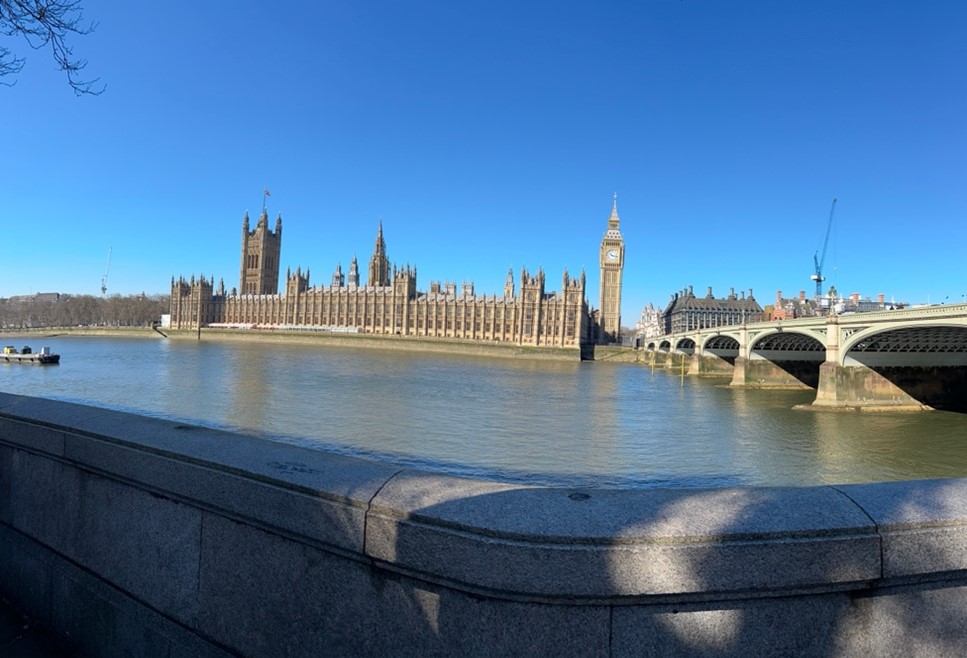Reflections from the House of Commons: Building Healthier Places for the Future

By Professor Sarah Rogers, Theme lead for the ARC NWC Care and Health Informatics Theme.
Stepping into the House of Commons for the Home and Habitat event was a fascinating experience. The setting highlighted the importance of the discussions ahead, bringing together policymakers, industry leaders, and researchers to tackle the challenge of sustainable housing. Invited through the Industry and Parliament Trust, I attended as an expert to share insights from our UK Prevention Research Partnership, GroundsWell, an NIHR Applied Research Collaboration North West Coast-supported project, exploring how urban green and blue spaces impact public health.
The government’s plan to build 1.5 million homes is ambitious, but there are concerns about environmental impact. Biodiversity Net Gain (BNG) policies require developers to offset damage to nature, but enforcement is weak, and many projects fall short.
We had Paul Holmes MP, the Shadow Housing Minister chairing, with two invited speakers. From an industrial-ecological perspectives, Helen Nyul spoke first, followed by Daniel Black, from, TRUUD, another UKPRP consortium. They nicely set the scene and then I got my chance to speak, focussing on the people living in and around these developments.
Our research in GroundsWell shows that the spaces between homes like parks and walkways can hugely benefit health, but they often go unnoticed or unused. Some people don’t even realise the park at the end of their street is public. Planning needs to include communities from the start if we want these places to work.
Developers attending agreed they want to be fair to the communities, keep their trust, and preserve local green spaces, but the current regulations do not make this easy to achieve. There was consensus about the need to work in collaboration to achieve Biodiversity Net Gain, ensuring we have healthy people and a healthy planet.
I also talked about how housing and the lack of local parks affects long-term health. The pandemic made this painfully clear. When homes are built without considering how they shape daily life, we risk deepening issues like obesity and poor mental health. We have to look beyond the bricks and mortar and focus on the people who will actually live there—because without environments supporting health and wellbeing, we lack a meaningful foundation.
Before the session, I had an interesting chat with Helen Nyul from Barratt Redrow. Her work on biodiversity data echoed a lot of what we’ve found, there’s a need for better data-sharing between councils, the NHS, and environmental organisations. That kind of joined-up approach could make a real difference to how well Biodiversity Net Gain is delivered—and whether it benefits the communities that it’s supposed to.
Overall, the event was a reminder that our health, housing, and environment are all deeply connected. At GroundsWell, we’re keeping these links front and centre, actively working towards systems change and we’re looking forward to building future evidence and policy.
If you’d like to learn more about GroundsWell and our work, you can visit our website here: GroundsWell. For further information please email arcnwc@liverpool.ac.uk who will put you in touch with the team.